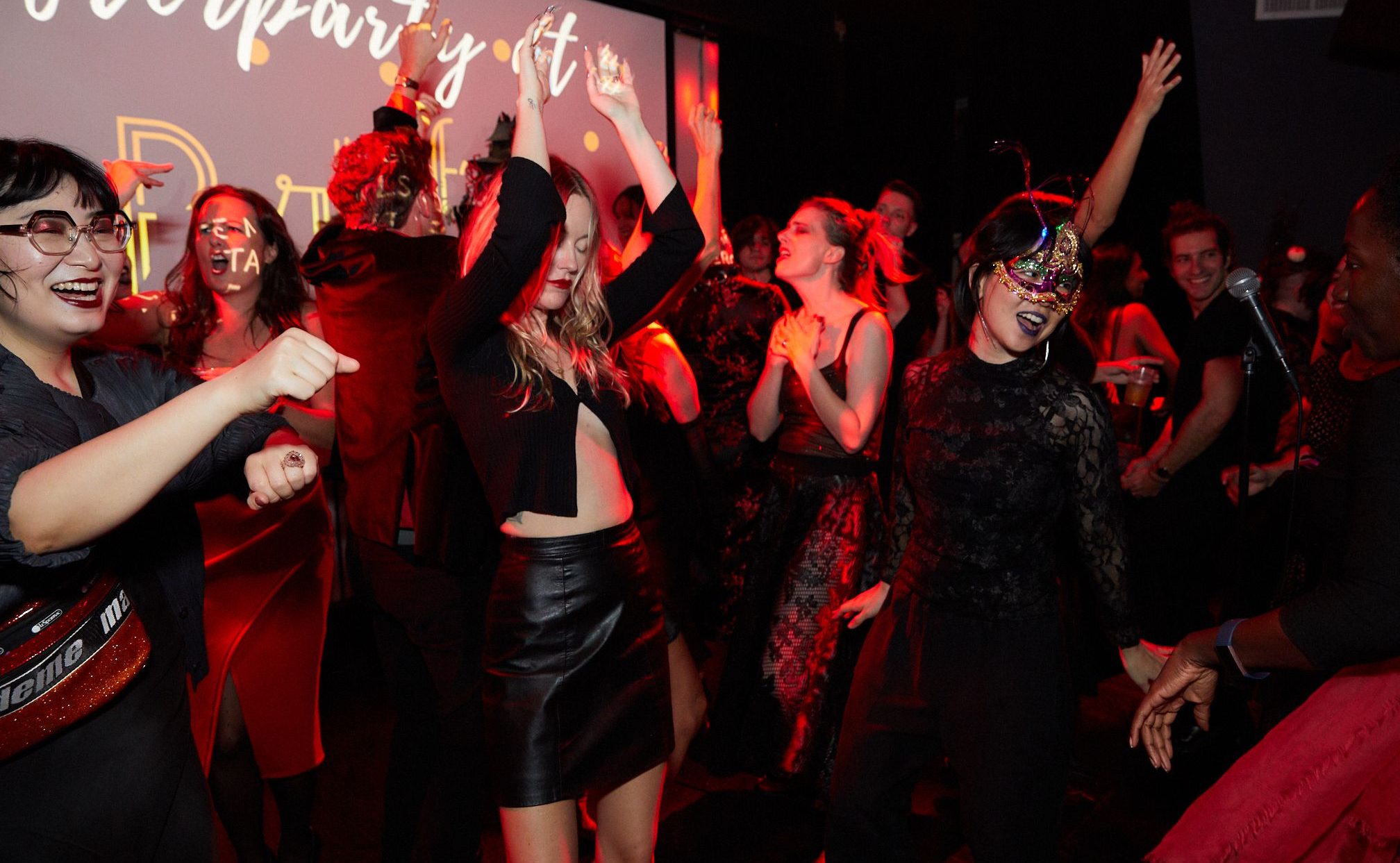news
Fatwa This! — Salman Rushdie at powerHouse Arena

1. Marissa, who names herself by her hatred of generalizations; David, who names himself by his hatred of Mitt Romney; and Geoff, who names himself by his hatred of food.
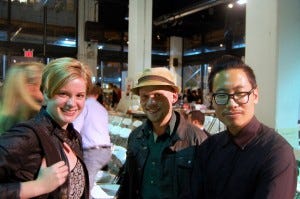
The world is a dangerous place, as Salman Rushdie knows, whether you’ve been fatwa’d or not, but last Wednesday night Rushdie and his fans overcame death threats, downpours, and subway delays to celebrate the release of his new book, Joseph Anton: A Memoir. Brooklyn’s brave booklovers filled the rows of folding chairs in powerHouse Arena, which faced an ad hoc stage outfitted with enormous PA speakers, two high canvas director’s chairs, and a vase of flowers. The bravest of all was Rushdie, who, despite a recently re-issued fatwa sat in the center of this spectacle, the object of fifty or sixty sets of eyes, including the glassy eyes of two or three video cameras.
1. powerHouse Arena’s owner, bravely introducing Rushdie. 2. Salman Rushdie, describing how it feels to be sentenced to death: “It doesn’t feel good.”
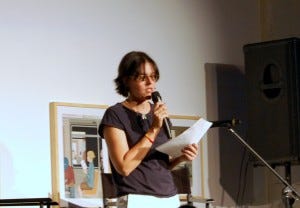
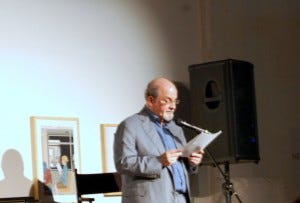
Rushdie began the evening by reading an opening excerpt of Joseph Anton, a memoir mainly concerned with his life after the fatwa that he received from Ayatollah Khomeini, Supreme Leader of Iran, as an unwanted present on Valentine’s Day, 1989. The excerpt describes his confrontation with this death sentence in a third-person account that is cool, distanced, and surprisingly funny. When he asks a journalist whether the fatwa was a “rhetorical flourish” or “genuinely dangerous,” the journalists says not to worry, because “Khomeini sentences the President of the United States to death every Friday afternoon.” The humor moves in both directions: Rushdie’s memoir recounts how when asked for his reaction to the threat he responds, “I wish I’d written a more critical book.” But the deadpan humor doesn’t hide the fatwa’s effects on Rushdie’s psyche: “He was a new self now. He was the person in the eye of the storm, no longer the Salman his friends knew but the Rushdie who was the author of The Satanic Verses.”
1. New Yorker fiction editor Deborah Treisman and Rushdie, fielding questions from the audience.
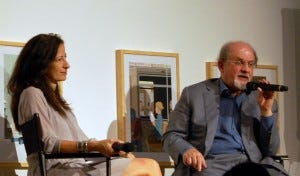
Following Rushdie’s description of his “unfunny Valentine,” New Yorker fiction editor Deborah Treisman joined him for a Q&A session. Rushdie is a yarn-spinner, his dignified British accent giving him the air of a cheeky grandfather, loosened up after a glass of brandy. Describing himself as having “the misfortune of being a writer with an interesting life,” he explained that he wrote Joseph Anton in the third person because of his own detachment from the experience, which nevertheless inspired him to keep a journal for the first time. When asked about the recently renewed fatwa, Rushdie explained that there is no longer any danger, but only “one old man shaking his fist.”
The evening ended with an open Q&A, during which Rushdie was asked about his experience writing the memoir and his analysis of the relationship between the West and Islam. Speaking of both cultures, Rushdie said, “People are asked to find themselves by what outrages them… we name ourselves by what we hate.” As the object of an intense, ideological hatred, Rushdie is an authority on this form of identification, though it was absent in powerHouse Arena, where the audience was united by a common appreciation of Rushdie and his work.
***
— Sam Gold has been sentenced to the lesser charge of being awoken every day two minutes before his alarm clock goes off.







